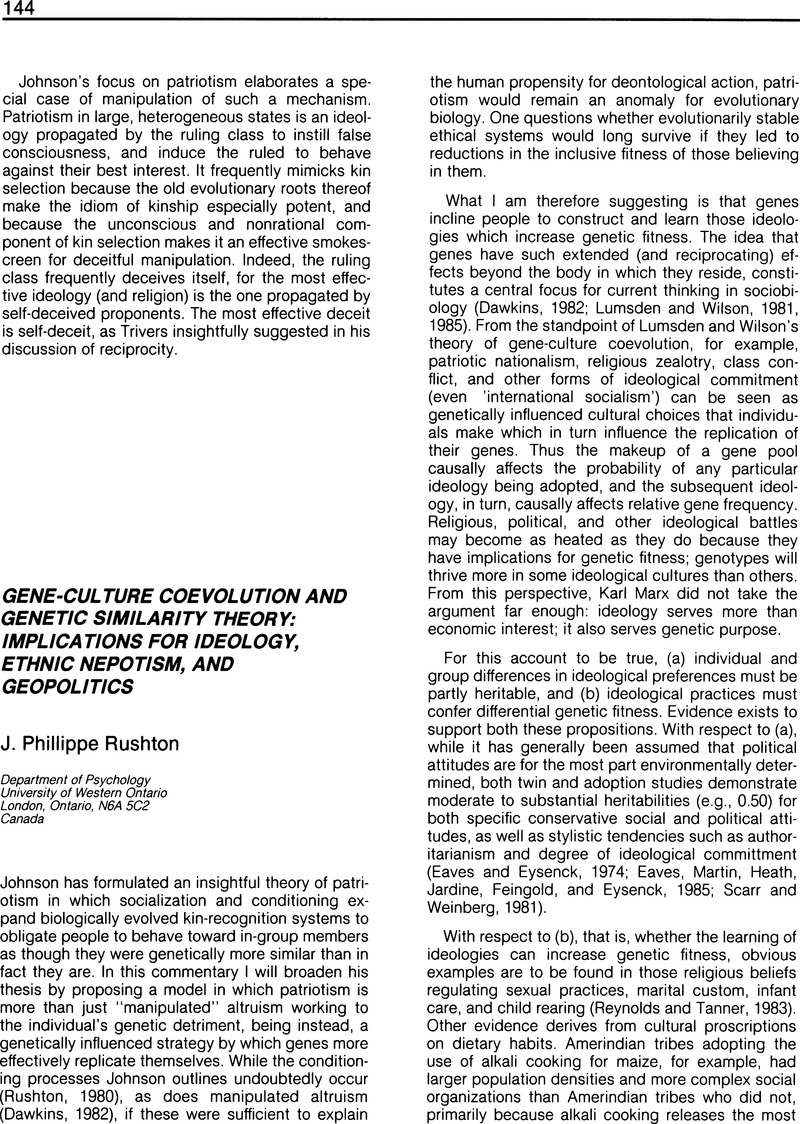Article contents
Gene-Culture Coevolution and Genetic Similarity Theory: Implications for Ideology, Ethnic Nepotism, and Geopolitics
Published online by Cambridge University Press: 17 May 2016
Abstract

- Type
- Articles and Commentaries
- Information
- Copyright
- Copyright © Association for Politics and the Life Sciences
References
Notes
The argument advanced here represents a preliminary attempt to combine the theory of gene-culture coevolution proposed byLumsden, and Wilson, (1981, 1985), the extension to selfish-gene theory made byDawkins, (1982), and the work with my colleagues, Robin Russell and Pamela Wells on genetic similarity theory (e.g., Rushton, , Russell, , and Wells, , 1984, 1985). Although references exist in the text to these works, I am pleased to more formally acknowledge my indebtedness in this note. Any errors or misapplications, of course, are entirely my own.Google Scholar
The preparation of this commentary was facilitated by a grant to the author from The Pioneer Fund. It is a pleasure to thank Christine Littlefield for her many valuable comments and suggestions and for numerous hours of discussion bearing on the issues.Google Scholar
- 6
- Cited by


